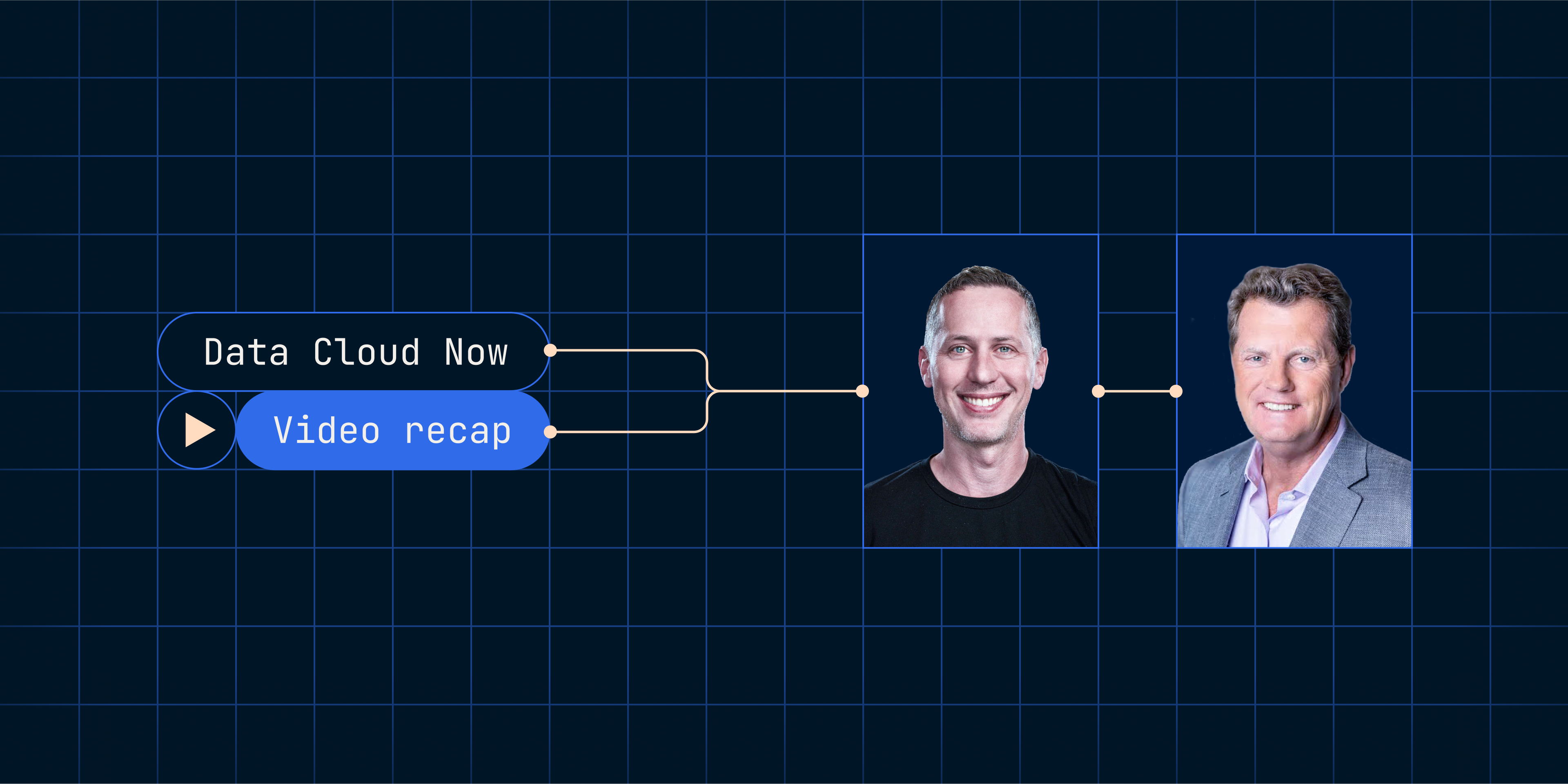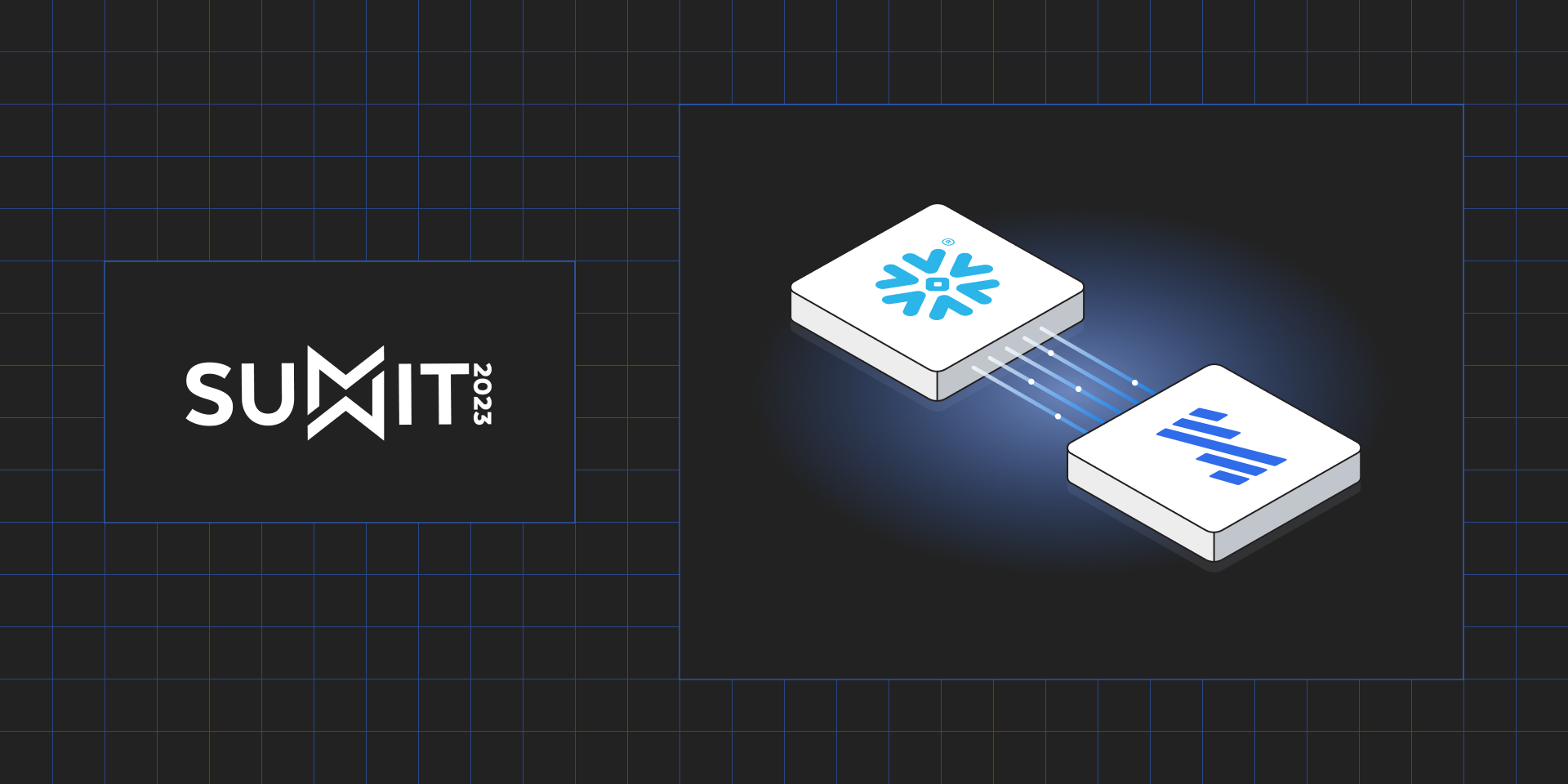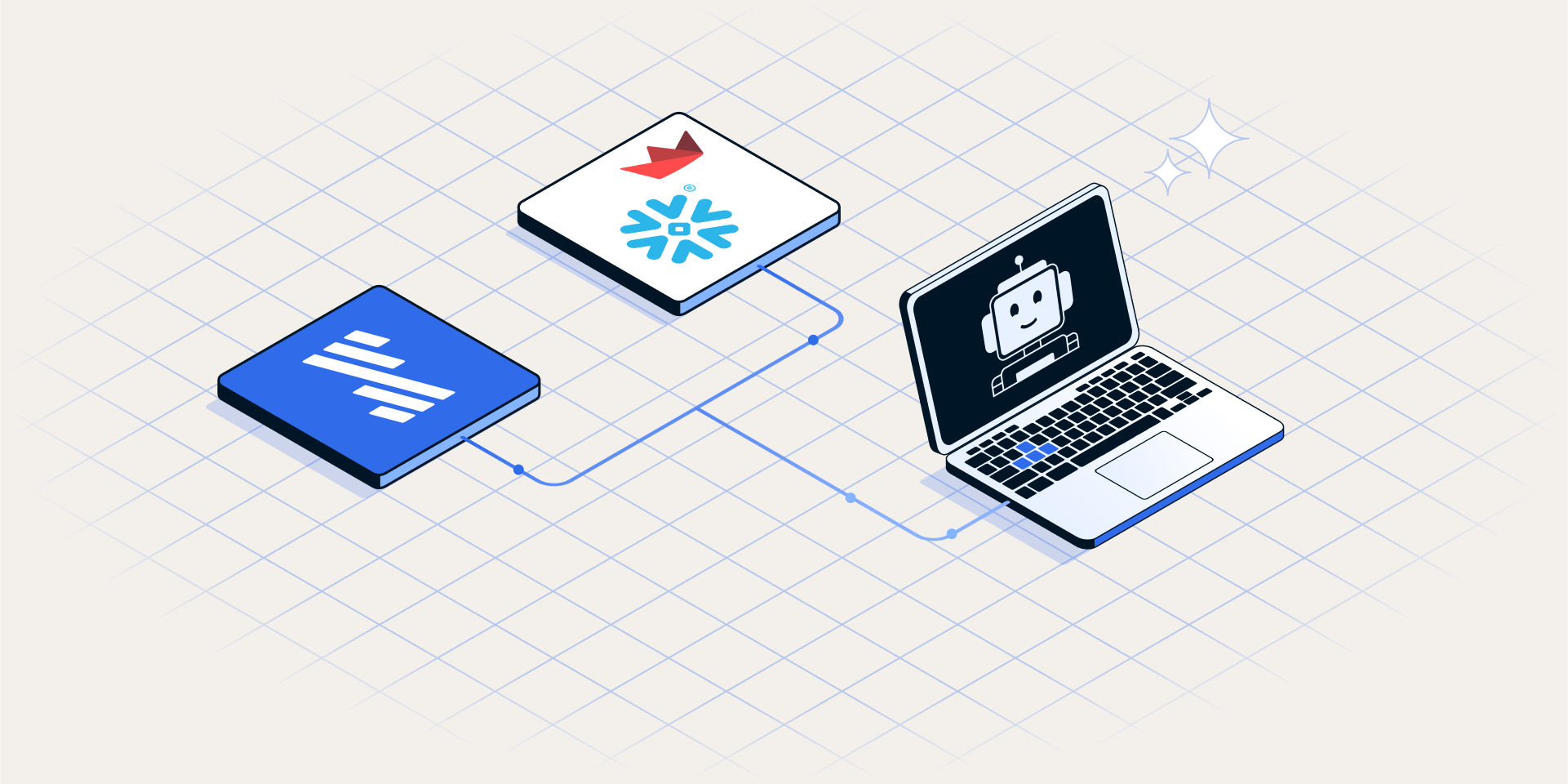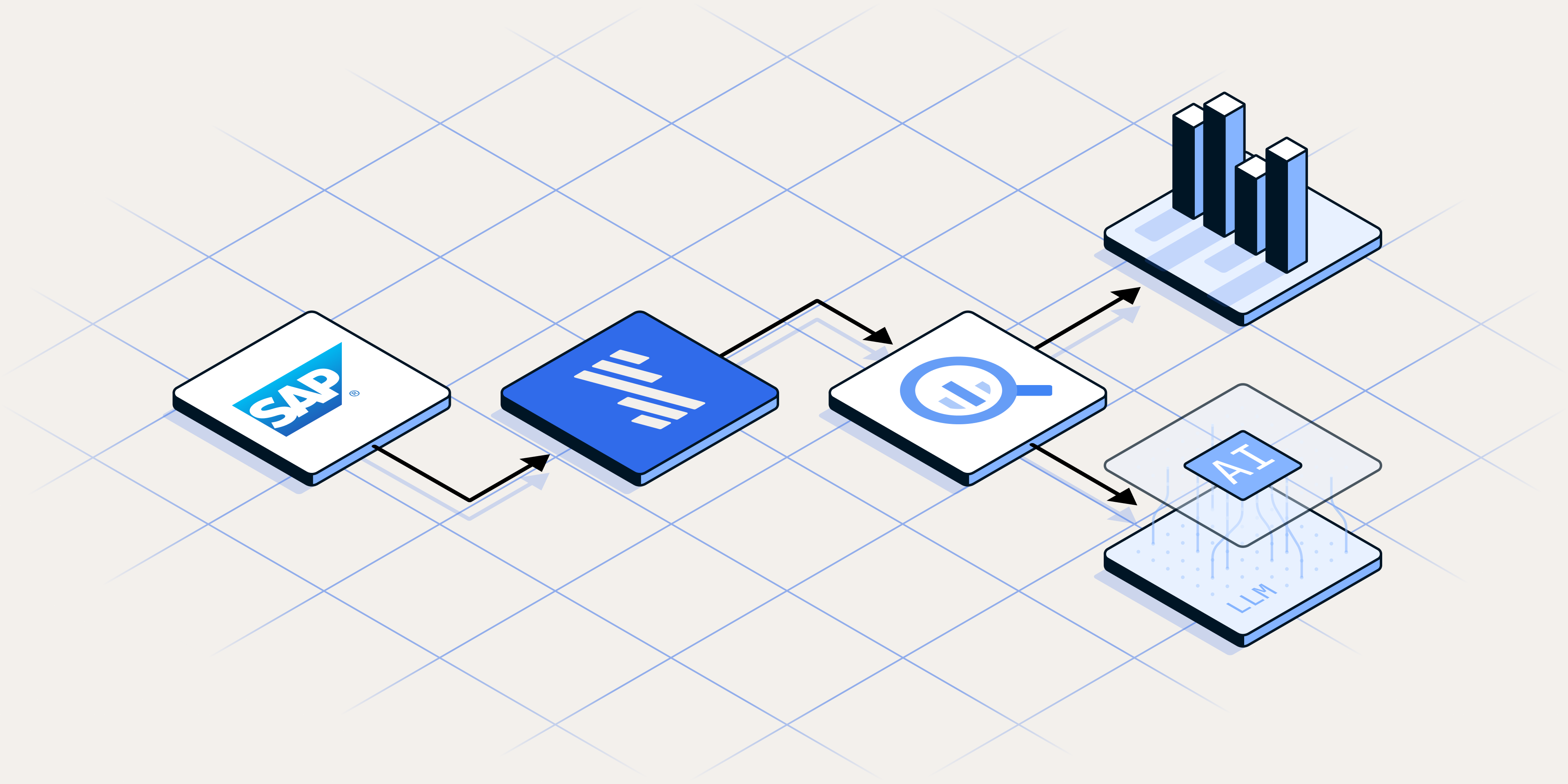Fivetran CEO and Co-Founder George Fraser and Snowflake CEO Frank Slootman sat down with Ryan Green on Data Cloud Now to discuss what they’re currently seeing across the enterprise data landscape.
We’ve broken down some of their insights to understand the current state of the industry, what they’re hearing from customers and the role data will play in the future of enterprises.
At a high level, three takeaways were especially relevant:
- Data is essential for enterprises to achieve financial efficiency in our current market
- Centralization of ERP data creates more value for enterprises
- Low-latency enterprise data will help enterprises drive faster, more informed decisions
The combination of these three factors will influence the current and future state of enterprises as they aim to develop their data strategy.
Leveraging enterprise data for financial efficiency
“The only way to drive institutions and enterprises is through data.” - Frank Slootman, CEO, Snowflake
As budgets tighten and our markets grow more difficult to navigate, the focus on data hasn’t waned. Both CEOs spoke on how important data is to their customers who are aiming for financial efficiency at this tense time.
As George said, “Data takes on a whole new importance in tough times, in trying to understand what's really happening and what's really working, what's not working and where you're spending money that has ROI.”
In other words, data is critical in understanding value across your enterprise and thus is the catalyst to cut through the noise of both internal and external market changes.
For example, Fivetran has found that while some smaller organizations are looking to reduce their amount of connections to focus specifically on their most integral data, larger enterprises continue to increase investment in centralizing all of their data sources into one location (like Snowflake).
That centralization garners greater value from your full data landscape, as data’s impact increases as you break down silos and open up the opportunity to let all of your varying sources (and their full volume) inform your decisions.
Especially from the perspective of large, long-standing organizations that have scattered data sources from varying acquisitions, locales and products — it’s now table stakes to utilize them in unison (and in near real-time, but more on that later).
The importance of centralization for ERP data
“When a company has been around for a long time, they accumulate a lot of complexity…Oftentimes when you go in and look at these companies, you discover the IT infrastructure is a microcosm of all the acquisitions they've ever done. So the challenges are greater. But the value to be unlocked is [also] greater.” - George Fraser, CEO & Co-Founder, Fivetran
For many enterprises, data is scattered through a wide variety of tools and sources — some of which are exceptionally difficult to leverage with agility. That creates data silos and bottlenecks. In the words of Frank Slootman, “Data silos have been the bane of our data existence since the beginning of computing.”
While Snowflake helped break down those silos through a simple and intuitive interface (or what George said, was “like operating a Gmail account”) they don’t do so alone.
Data doesn’t originate in Snowflake, so customers need an easy way to move data from various locations. By combining Snowflake and Fivetran, customers can move and leverage all of their data easily, without having to consider how it reaches their Data Cloud. That includes even the largest and most difficult enterprise data sources, such as ERP (enterprise resource planning) systems.
ERP systems such as SAP and Oracle NetSuite are utilized in the background of many of the largest enterprises. Data concerning everything from product performance to shipping and logistics sits within these highly complex systems, many of which are configured specifically for an organization. And yet, the high volume of data stored in ERP systems, the speed at which it's generated and the variety of data formats included make it difficult to access quickly.
Additionally, it’s separate from the many other data sources an enterprise has, including marketing and sales data, and enterprises see far less value from their data than they should.
That’s why enterprise organizations are utilizing Fivetran to move ERP data to Snowflake and access it in near real-time, and in combination with other enterprise data sources such as Oracle, or other varying sources such as Salesforce and Stripe.
That centralization opens up a whole new realm of possibility for letting data actively drive decisions and is an essential part of a modern data stack.
Low-latency, high-impact ERP data to drive results
“People want to report yesterday's news in a timely manner, not two days later. So for [joint] customers like Pitney Bowes, we went from 31 hours to 2 hours across all their different operating units, all the different data formats, all the different feeds.” - Frank Slootman, CEO, Snowflake
Historically, the volume of enterprise data made it difficult to leverage it in a timely, actionable manner. Reporting was sluggish and didn’t match the pace required to run a large, international enterprise.
“Our world has been very, very batch-oriented historically. That is changing. And Fivetran is helping enable that change to continue the streaming ingestion and transformation of data” - Frank Slootman, CEO, Snowflake
Having a near real-time stream of data, even from the most complicated of sources such as SAP, provides analysts, strategists and leaders the required agility to react to an incredibly fast-paced market.
This is especially relevant when you consider the varying conditions, formats and qualities that data can arrive in from your various sources. With the volumes of data that enterprises work with —transforming, cleaning and preparing data for use is challenging without a modernized data stack.
An ELT process (Extract-Load-Transform) like Fivetran enables populating data directly into your destination, like Snowflake’s Data Cloud, and reduces the time it takes to normalize data by transforming it in your destination post-load. For more innovative uses of data such as predictive analytics and machine learning, low latency isn’t just nice to have, it’s required to work at the pace and quality required for real-time recommendations and decision support.
When time to insights is a concern, low-latency, high-impact data is a requirement — and thus, so is a modern data stack.
[CTA_MODULE]
How the Fivetran & Snowflake partnership helps
As George said, “The world has had a data integration problem ever since the world had two databases.”
Fivetran and Snowflake have worked in partnership for quite some time to provide modern data solutions for customers of every size. Before these solutions, enterprises were working with homegrown solutions that required large amounts of time and resources. Enterprise volume data from SAP and Oracle was at best slow to utilize, and at worst — completely unmanageable in combination with other data sources.
The modern data stack has enabled enterprises to better allocate those resources and better leverage the full landscape of their data to the speed and scale required to match this current economic climate. In fact, Snowflake even utilizes Fivetran for their own data movement needs!
By combining Snowflake and Fivetran, customers can move and leverage all of their data easily, without having to consider how it reached the point of use. We’ve worked to remove the risk and friction previously required to transform (both literally and figuratively) the large volume of data enterprises require to make educated decisions.
“Our whole goal is to make the data pipelines invisible so that you can forget that they're there. The data is a perfect replica of the data source and it's updating in real-time, so you can sit there looking at Snowflake and forget for a minute that it didn't all originate there.” - George Fraser, CEO & Co-Founder, Fivetran
And considering both Fivetran and Snowflake work under a usage-based pricing model, enterprises have full control at a very granular level. They can throttle up and down whenever they see fit. Frank said, throughout his career, this pricing model is “the most equitable” — working to provide value to the customer first and foremost.
These factors, and more, are what have made the Fivetran and Snowflake partnership so impactful — and that partnership is continuing to help enterprise organizations derive more value out of their data.
[CTA_MODULE]











.png)



.png)
%20(1).png)
.svg)
.svg)
.svg)